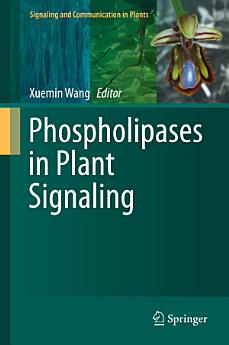Phospholipases in Plant Signaling
Xuemin Wang
Jan 2014 · Signaling and Communication in Plants Book 20 · Springer Science & Business Media
Ebook
228
Pages
reportRatings and reviews aren’t verified Learn More
About this ebook
This volume focuses on recent advances in the biochemical and molecular analysis of different families of phospholipases in plants and their roles in signaling plant growth, development and responses to abiotic and biotic cues.
The hydrolysis of membrane lipids by phospholipases produces different classes of lipid mediators, including phosphatidic acid, diacylglycerol, lysophospholipids, free fatty acids and oxylipins. Phospholipases are grouped into different families and subfamilies according to their site of hydrolysis, substrate usage and sequence similarities. Activating one or more of these enzymes often constitutes an early, critical step in many regulatory processes, such as signal transduction, vesicular trafficking, secretion and cytoskeletal rearrangements. Lipid-based signaling plays pivotal roles in plant stress responses, cell size, shape, growth, apoptosis, proliferation, and reproduction.
Rate this ebook
Tell us what you think.
Reading information
Smartphones and tablets
Install the Google Play Books app for Android and iPad/iPhone. It syncs automatically with your account and allows you to read online or offline wherever you are.
Laptops and computers
You can listen to audiobooks purchased on Google Play using your computer's web browser.
eReaders and other devices
To read on e-ink devices like Kobo eReaders, you'll need to download a file and transfer it to your device. Follow the detailed Help Center instructions to transfer the files to supported eReaders.







